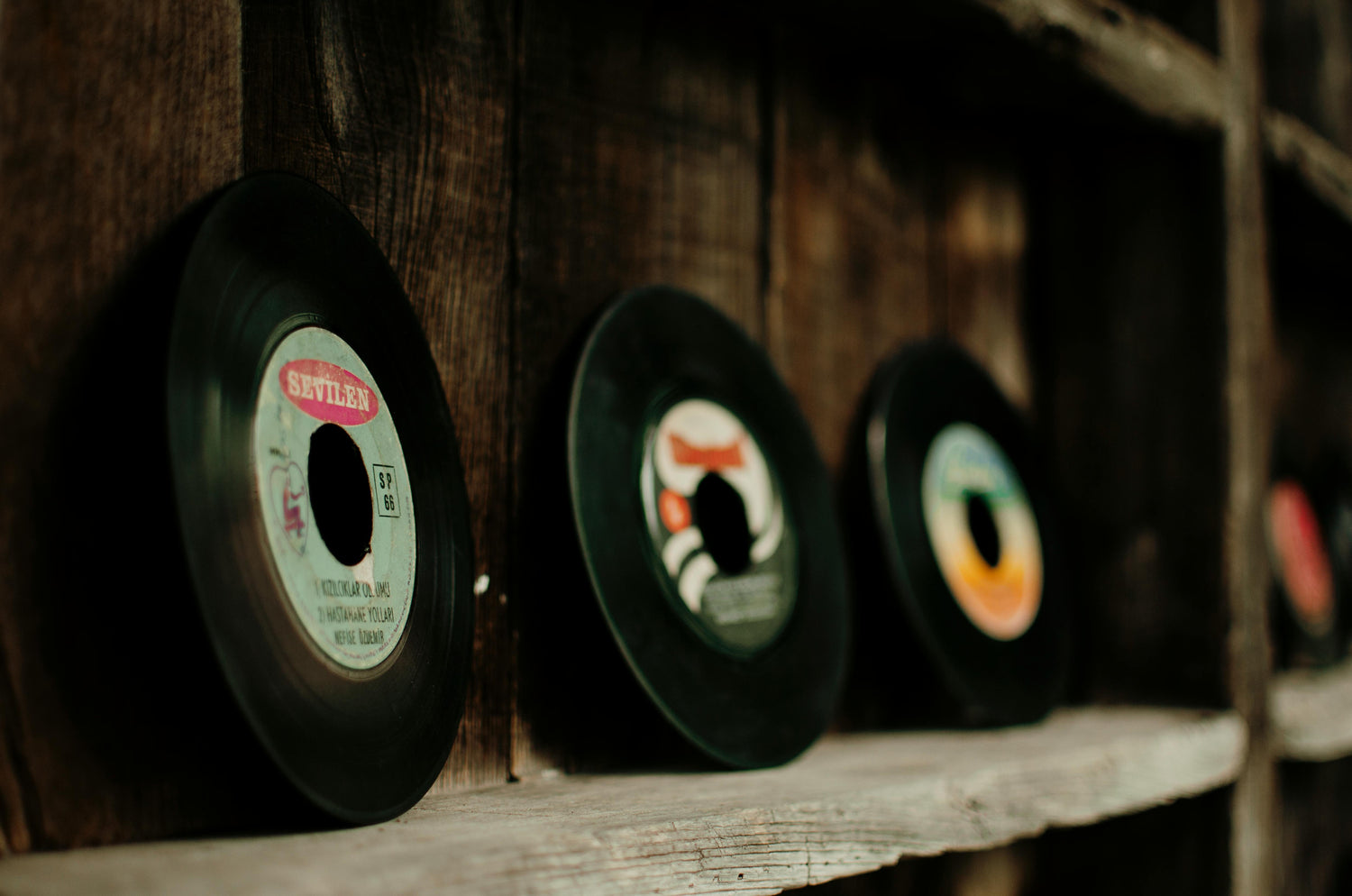Scroll through a dedicated Facebook group for comic book vinyl in 2025. You will see more than just pictures of records. You will see a complex, living ecosystem with its own language, laws, currency, and brutal social hierarchies. These online spaces—whether on Discord, Reddit, or private forums—are not mere fan clubs. They are the digital campfires around which modern tribes gather, built to trade, validate, and worship the physical totems of their fandom: the vinyl soundtracks of heroes and villains.
To understand why a collector would post a picture of a rare, black-and-white "noir" edition of the Logan soundtrack on their turntable, you have to look past the hobby and into the raw code of human social dynamics. This is a story about the search for belonging, the establishment of status, and the creation of unregulated micro-economies in the digital wilderness.
First Principles: The Unshakable Foundation of the Online Tribe
Three primal forces are at play, turning a simple hobby into a complex social structure.
1. The Tangible Totem as a Social Anchor:
A community cannot form around an abstraction. A shared appreciation for a digital file on Spotify is fleeting and formless. A community requires a physical anchor, a totem. A vinyl record—heavy, fragile, and visually striking—is the perfect totem. It is a real object that exists in the real world, providing a concrete focal point for discussion, trade, and envy. The community doesn't just share an interest; they share a library of physical artifacts. Trading a rare Captain America soundtrack isn't just a transaction; it's a transfer of a sacred object from one believer to another.
2. The Unregulated Micro-Economy and the Currency of Trust:
These communities are, at their core, marketplaces. But they are marketplaces that often operate outside the safety nets of eBay or Discogs's formal system. Here, the primary currency is not money; it is reputation. A member's "vouch list"—a public record of successful and honest transactions—is more valuable than their bank account. A single act of dishonesty, like scamming a trade partner, results in immediate and permanent exile. This public shaming is swift and merciless. These groups are a raw demonstration of how human societies self-police to enable commerce. They are libertarian marketplaces where trust is built, traded upon, and ruthlessly defended.
3. The Turntable as the Altar of Authenticity:
This is the single most important element that separates a true collecting community from a simple marketplace. It is not enough to own the record. You must experience it. The turntable is the altar upon which the vinyl is sanctified. The act of posting a "Now Spinning" photo is a critical social ritual. It proves several things:
-
You are not a flipper: You opened the record. You are a true believer, not a mercenary.
-
You are committed: You have invested in the hardware necessary to properly engage with the medium.
-
You are sharing an experience: You invite others to comment on the music, the pressing quality, the emotional resonance of the score.
A high-quality, aesthetically pleasing turntable, like the XJ-HOME recorder, becomes more than a piece of audio equipment. It is a stage for your collection. It is the centerpiece of the ritual, the tool that signals your level of seriousness. Your choice of gear becomes a secondary language of status within the tribe.
The Great Schism: The Audiophile vs. The Art Collector
Within these tribes, a fundamental philosophical war is constantly being waged. It is the conflict between two distinct identities:
-
The Audiophile: This individual worships at the altar of sound. They are obsessed with pressing quality, dynamic range, and the reputation of mastering engineers and pressing plants like Record Technology Incorporated (RTI). They will mock a beautiful-looking picture disc that has audible surface noise. For them, the record is a vessel for sonic information, and any compromise in quality is heresy. Their language is one of "soundstages," "low-end response," and "mastering."
-
The Art Collector (or "Wall Art" Collector): This individual worships the object itself. The rarity, the color variant ("cornetto," "splatter," "galaxy"), and the cover art are paramount. They may never unseal their most valuable records. For them, the vinyl is a visual artifact, a piece of art that represents their fandom. Sound quality is a secondary, almost irrelevant, concern. Their language is one of "variants," "exclusivity," and "mint condition."
This schism creates a dynamic and often aggressive tension that fuels countless debates. It is the central philosophical struggle of the community: what is the "true" purpose of a collectible record?
The Future is Tribal
By 2025, these communities will become even more entrenched and specialized. As the market for comic book vinyl grows, the need for trusted, self-policing groups will only increase. They are a powerful, adaptive human response to a digital world that has left many feeling disconnected. They use modern tools to satisfy ancient needs: to gather, to trade, to establish status, and to build a shared identity around physical objects that truly matter to them.
They are not just forums. They are the new frontier of fandom, complete with their own pioneers, outlaws, holy relics, and unwritten laws.
Understanding Verification
Here are three high-value questions to test the core understanding of the article, along with their answers.
1. Question: The article claims the primary currency in these online communities is not money, but reputation. From a first-principles perspective, why must this be the case for the community to function?
Answer: It must be the case because these communities often operate as peer-to-peer marketplaces without a central, third-party guarantor like PayPal Protection or a formal platform. In such an environment of high risk (scams, misrepresentation of goods), the only thing that enables transactions is trust. A member's reputation, built through a public history of honest dealings (vouches), becomes their credit score. It is the essential social collateral that assures others they will not be cheated. Without this currency of trust, commerce would halt, and the community would collapse into a non-functional state of mutual suspicion.
2. Question: How does the "turntable as the altar" concept serve as a social gatekeeping mechanism within the community?
Answer: The turntable functions as a gatekeeping mechanism by creating a barrier to entry that separates "true believers" from casuals or profit-driven flippers. The act of unsealing a valuable record and playing it is a costly signal; it often reduces the record's resale value, proving the owner's primary interest is in the musical experience, not the investment. Furthermore, displaying one's audio gear in "Now Spinning" posts creates a visual hierarchy. It signals a level of financial and intellectual investment in the hobby, subtly sorting members based on their perceived commitment and seriousness, thus reinforcing the group's internal status structure.
3. Question: The article describes a "Great Schism" between Audiophiles and Art Collectors. Why is this internal conflict actually beneficial for the long-term health and engagement of the community?
Answer: This conflict, while seemingly divisive, is beneficial because it generates constant, passionate discourse, which is the lifeblood of any online community. The debate over a record's "true" value—its sound vs. its appearance—creates a rich and ongoing conversation that keeps members engaged. It allows different types of members to find their niche and assert their identity. This philosophical tension ensures the community is never static. It fuels content, drives debate, and forces members to articulate and defend their values, ultimately making the community more dynamic, intellectually stimulating, and resilient.





Leave a comment
All comments are moderated before being published.
This site is protected by hCaptcha and the hCaptcha Privacy Policy and Terms of Service apply.